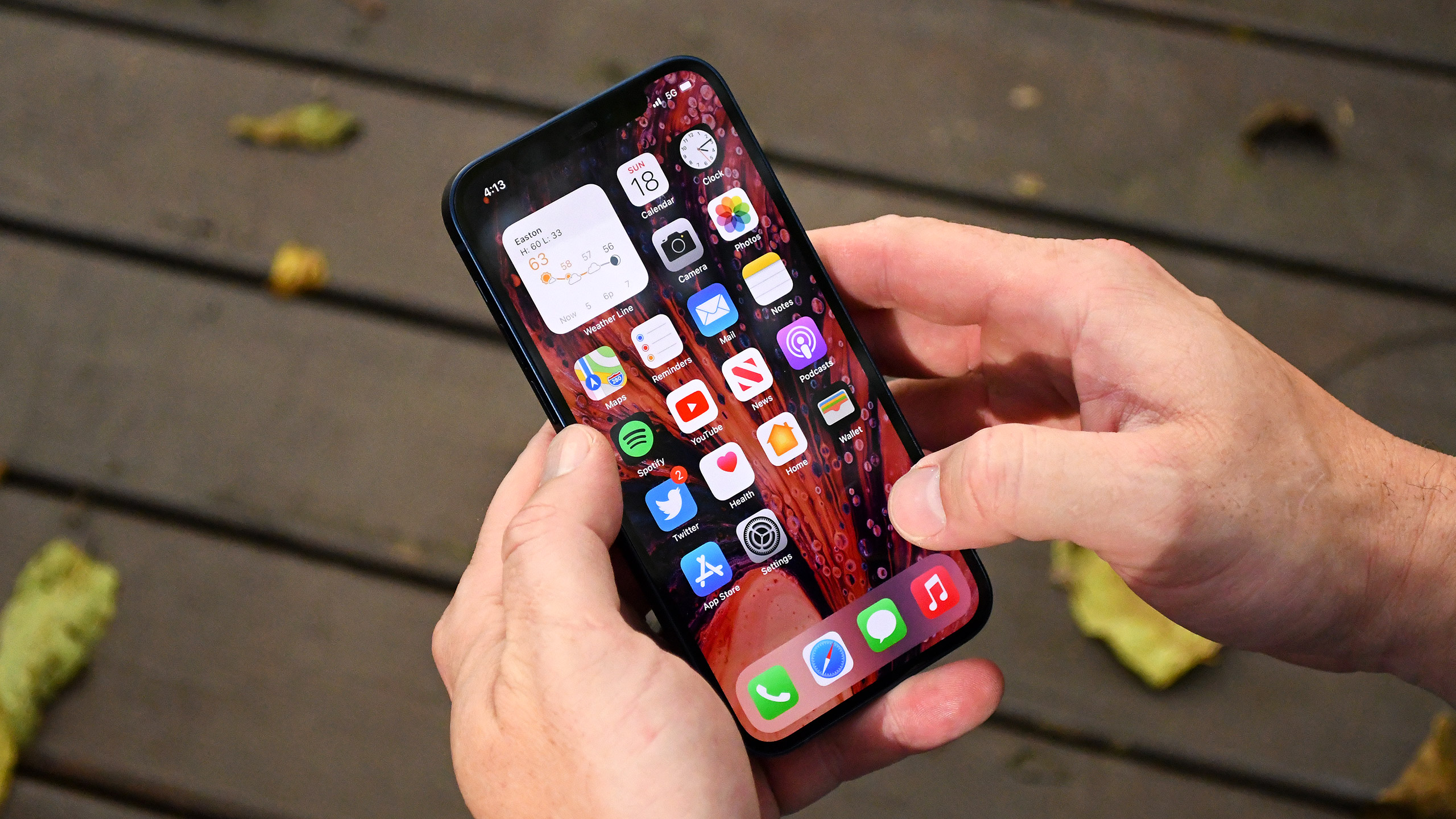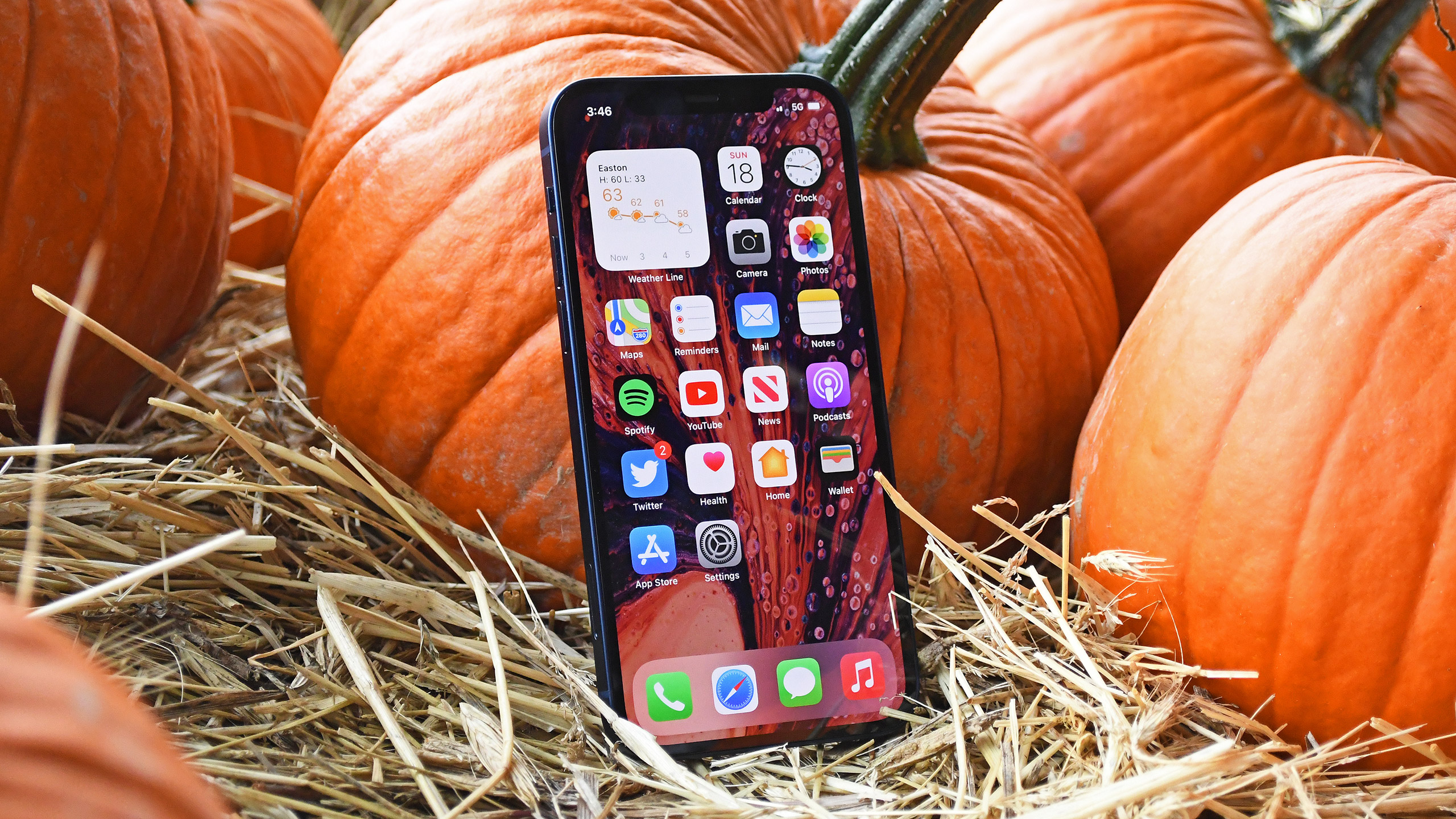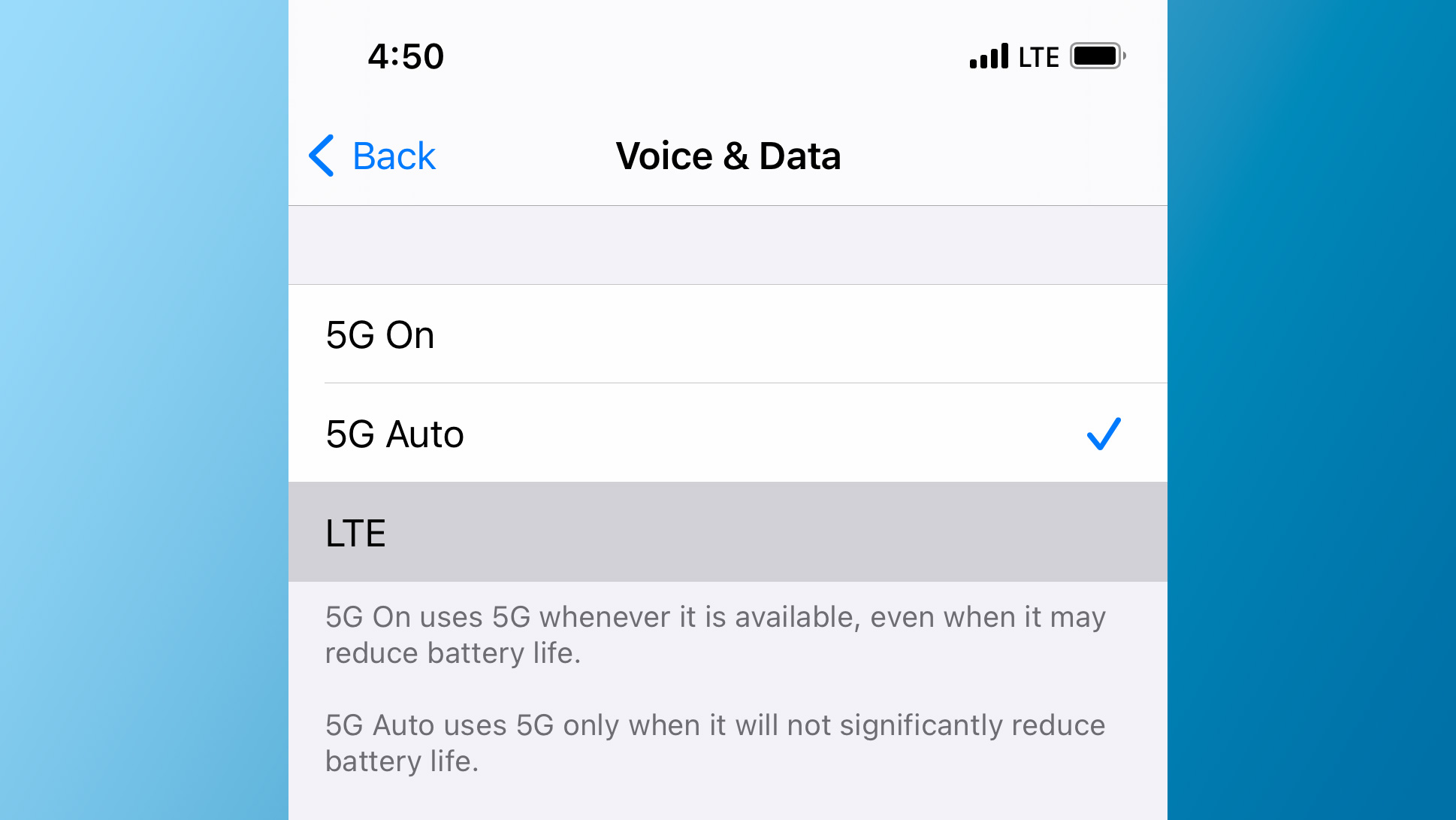Buying iPhone 12? Here's how to keep 5G from killing your battery
5G can strain your iPhone 12's battery life. Fortunately, we have a solution.

Here at Tom’s Guide our expert editors are committed to bringing you the best news, reviews and guides to help you stay informed and ahead of the curve!
You are now subscribed
Your newsletter sign-up was successful
Want to add more newsletters?

Daily (Mon-Sun)
Tom's Guide Daily
Sign up to get the latest updates on all of your favorite content! From cutting-edge tech news and the hottest streaming buzz to unbeatable deals on the best products and in-depth reviews, we’ve got you covered.

Weekly on Thursday
Tom's AI Guide
Be AI savvy with your weekly newsletter summing up all the biggest AI news you need to know. Plus, analysis from our AI editor and tips on how to use the latest AI tools!

Weekly on Friday
Tom's iGuide
Unlock the vast world of Apple news straight to your inbox. With coverage on everything from exciting product launches to essential software updates, this is your go-to source for the latest updates on all the best Apple content.

Weekly on Monday
Tom's Streaming Guide
Our weekly newsletter is expertly crafted to immerse you in the world of streaming. Stay updated on the latest releases and our top recommendations across your favorite streaming platforms.
Join the club
Get full access to premium articles, exclusive features and a growing list of member rewards.
The iPhone 12 is finally available, and prospective buyers probably have a lot of questions about 5G. How fast will 5G be in my area? What can I do with 5G better or differently that I couldn’t on 4G LTE? And, perhaps most importantly at the moment, what will 5G mean for my battery life?
According to our iPhone 12 battery test results, the news isn’t encouraging. We’ve run both the 6.1-inch iPhone 12 and iPhone 12 Pro through our custom test, which involves continuous web surfing over a data connection while set to 150 nits of screen brightness. During these sessions, both the iPhone 12 and 12 Pro were connected to 5G; the iPhone 12 lasted 8 hours and 25 minutes, while the Pro lasted 9:06.
- Read our iPhone 12 review
- iPhone 12 MagSafe charging speed revealed — and it's bad news
- Plus: Amazing iPhone 12 deal — get $100 back and free Bose headphones
Those times aren’t great, as the average smartphone lasts around 10 hours on a charge. The iPhone 11 Pro, which wasn’t exactly known for its longevity relative to the other iPhone 11 models, lasted nearly 10.5 hours when we tested that phone a year ago.
To measure the impact of 5G on the iPhone 12’s battery life, we then decided to re-run our test, but on LTE. The results were eye-opening, with both the iPhone 12 and iPhone 12 Pro lasting about two hours longer when set to avoid 5G entirely. That left the iPhone 12 at 10:23, and the iPhone 12 Pro at 11:24. That iPhone 12 Pro LTE result would place that model on our list of best phone battery life for devices tested in the last 18 months.
Now, there could be a couple different factors at play here. It’s possible that the 5G signal in our testing was too weak. I observed an average of two out of a possible four bars in my experience on AT&T’s 5G network in suburban eastern Pennsylvania. If a phone can’t pull down a stable, strong signal, it searches for a better one. And when it can’t find it, it ends up switching back and forth between slow 5G or fast LTE, all of which consumes power. We can’t conclusively say that this was the cause of our iPhones’ poor performance during battery testing, but it may play a role.

Or, it could simply be that 5G consumes more power than LTE, and thus, Apple’s latest devices perform worse when connected to the faster network. That’s certainly plausible.
Regardless of the cause, the fact is that we saw better longevity on a charge on LTE. And because 5G is still in its infancy, even though carriers have launched networks all throughout the country, 5G infrastructure is massively failing to reach its speed targets, especially in its sub-6GHz, long-range deployment. That means you won’t necessarily see a speed decrease on nationwide 5G compared to LTE; in fact, your phone may download and upload faster, at least at this point in time.
Get instant access to breaking news, the hottest reviews, great deals and helpful tips.
How to turn off 5G on iPhone 12

Bearing all this in mind, we have a suggestion. If you are buying an iPhone 12 and you notice the battery life isn’t quite where you’d like it to be, simply turn 5G off. Fortunately, there’s an easy way to do just that, right from the iPhone’s Settings app.
Open Settings and head over to Cellular; from there tap Cellular Data Options, and then, Voice and Data. Here you’ll see an option for what preferred data type you’d like your iPhone to use. The option you choose won’t be the only type of data you receive; rather, you’ll get everything under it too, so 5G does still allow for LTE, for example.
From there, it’s as simple as tapping LTE, and you’re set. Your iPhone 12 will no longer attempt to connect to 5G networks, potentially saving time on a charge.
Why you should leave iPhone 12 5G turned on
We do still recommend new iPhone 12 users leave 5G on and at least see how the network affects their device. The results we observed surely won’t be the same for everyone, because data performance is obviously highly dependent on location. Additionally, if 5G happens to be really fast where you live, you might just elect to keep it on, battery life be damned.
For what it’s worth, Apple has designed a feature to assist with battery life on 5G, called Smart Data Mode. This setting is built into the iPhone 12 — it's that 5G Auto option that's active by default — and it instructs the device to fall back to LTE during situations when the screen is off but data is still being streamed up or down (like when listening to Spotify or Apple Music, for example).
The thinking is that if you’re not actively scrolling, watching or interacting with the display in some way, you don’t necessarily need all the throughput 5G allows, and using LTE instead can help your iPhone last longer through the day.
Smart Data Mode was switched on when we conducted our tests, though the nature of its design — that it really only becomes a factor when the screen is off — means it probably didn’t play a role in our testing. However, people in the real world don’t use their phones for 10 straight hours of web browsing, so Smart Data Mode could certainly make a positive difference in daily usage, and thus we encourage users to at least observe the kind of mileage they get on 5G before ditching it entirely.
Adam Ismail is a staff writer at Jalopnik and previously worked on Tom's Guide covering smartphones, car tech and gaming. His love for all things mobile began with the original Motorola Droid; since then he’s owned a variety of Android and iOS-powered handsets, refusing to stay loyal to one platform. His work has also appeared on Digital Trends and GTPlanet. When he’s not fiddling with the latest devices, he’s at an indie pop show, recording a podcast or playing Sega Dreamcast.
 Club Benefits
Club Benefits










